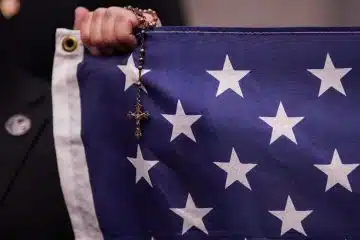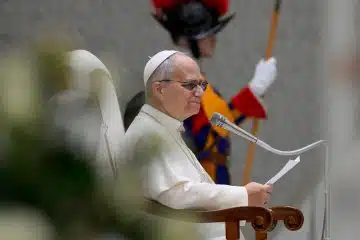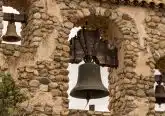The Father Let the Son Leave: A Lesson in Breaking Barriers

A youth minister heard something at a men’s formation breakfast at his parish that changed his life.
He hadn’t expected to get much from the morning. Having had a powerful encounter with Christ as a teenager and now working as a minister for almost a decade, he felt he had been around the block a bit more than the group’s typical attendee.
The day’s topic was the beloved Scripture passage he had heard a thousand times, “The Prodigal Son.” There was nothing more he could get out of this, he thought
… until an older man shared a perspective he’d never considered.
The session began as expected, with a quick video reflection and notes from the pastor before the men split into small discussion groups. They considered the first standard questions, such as: Which character from the parable do you connect with? What do you think it meant to the son that the father “saw him from a far way off and ran to him”?
Then, the elderly gentleman shared an insight the youth minister had never heard.
“What stood out to me,” said the older man, “is how the father let the son leave. He didn’t berate him. He didn’t shame him. He didn’t say, ‘You’re no son of mine! When your life doesn’t work out, don’t come crawling back to me!’ The father let the son leave in a way that the son knew he could come back.”
The youth minister sat stunned. He had never read a reflection on this point, nor heard a homily about it, nor had it ever even occurred to him.
The father could have placed a barrier between him and his son—a barrier in the way of forgiveness, healing, and life. But he didn’t.
The evil one loves barriers: those that hold fathers back from sons, mothers from daughters, husbands from wives … and us back from Christ. These barriers take root in our minds and our hearts and tell us such lies as:
I can’t go back.
I can’t be forgiven. I can’t be loved.
I can’t undo this sin.
“Together” is a beautiful thing. And barriers stand in the way of “together.”
Some barriers are insidious lies that nestle in our hearts and feel insurmountable. Other barriers can be extremely practical—the kids’ sports and school schedules preventing family dinners or a work deadline interfering with daily Mass.
Jesus is the ultimate barrier breaker. He stands before the lies and says so many times and in so many ways, “Come to me” (see Mt 11:28, Jn 6:37, Mt 19:14, Jn 14:6, among many others).
To grow together, you must remove such barriers. From those that separate families or those that stop a family from truly engaging with their parish, Jesus’ example is the same: identify barriers and remove them.
The world needs more barrier breakers.
And removing barriers is often simpler than you think, although not necessarily easy. For example:
Go to confession.
Write a letter to an estranged friend or relative. Be more intentional about your schedule.
And remember—like the father in the Prodigal Son— sometimes it’s best to be aware of barriers that could be created and head them off at the pass.
Be a barrier breaker. Remove the lie.
Remove the fear.
And watch what happens when you come back together.✣
 Dominick Albano is a passionately Catholic husband and father of four boys. He has been writing, speaking, and leading Catholic retreats for more than 20 years. He is the co-founder of the National Society for Priestly Vocations.
Dominick Albano is a passionately Catholic husband and father of four boys. He has been writing, speaking, and leading Catholic retreats for more than 20 years. He is the co-founder of the National Society for Priestly Vocations.
This article appeared in the September 2025 edition of The Catholic Telegraph Magazine. For your complimentary subscription, click here.













